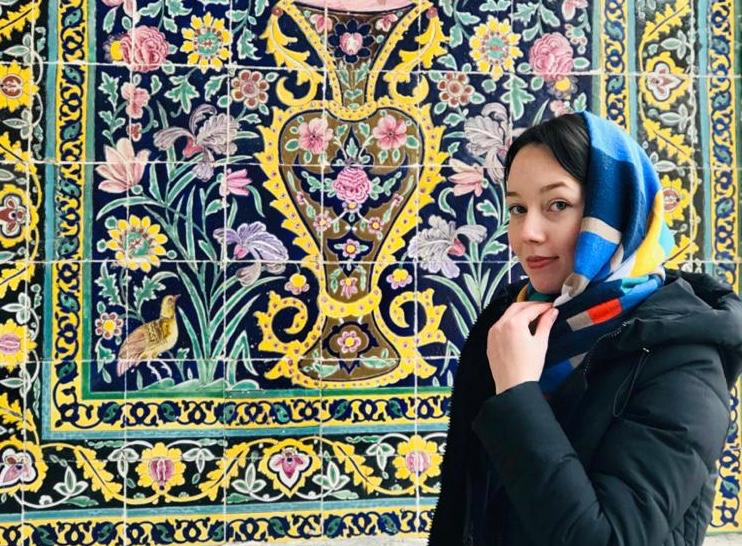'The Management System Used in HSE Helps Me a Lot Even Now'
Programme 'Business and Politics in Modern Asia' Alumna Valeria Panchenko tells about her job in IR Iran and useful skills gained through Master's studies

The first group of alumni graduated from HSE Saint Petersburg Master's programme in Asian Studies in 2019. During recent months, most of alumni have already found a job matching their specialization. One of these alumni, Valeria Panchenko, who is working in IR Iran now, told 2nd year student Ksenia Demidova about the features of work in an Islamic culture country, Asian communication techniques and how her Master's studies help her in her work now.
– Valeria, good evening. Thank you for agreeing to participate in the interview. To begin with, could you tell me where you work now, what position do you hold and how did you get it?
– Good evening! At the moment, I hold the position of leading specialist in the administrative department of the Rosatom’s affiliated company in Bushehr, Islamic Republic of Iran. I perform some paperwork as well as translations from / to Farsi. I found a job having searched on my own in autumn.
– As I understand, you have graduated the HSE master's programme 'Business and Politics in Modern Asia'. What knowledge gained on this program helps you in your work?
– It was quite interesting to study in the Higher School of Economics at the programme “Business and Politics in Modern Asia”, for after the fundamental knowledge that I had gained while studying at the St. Petersburg State University, I got the opportunity to deepen my knowledge with experiencing a completely different methodology and approach to teaching. I especially want to mark the management system used in the HSE (for example, the attitude towards deadlines, having 4 modules instead of 2 semesters, a large number of group assignments) - it is what helps me a lot now. At the moment, I understand how useful the course of prof. Romie Littrell for International Management was. Now I work with Iran citizens, who require a special approach and communication skills.
– Could you tell us in details how exactly this knowledge helped you? How is it necessary for a successful work?
– For example, thanks to the course of prof. Romie Littrell, I well understood the concept of differences in the management system of different cultures. So, making a business meeting with representatives of an Iranian company, I take into account their more flexible attitude to time (delays, reschedules do happen), I allocate at least two hours for negotiations, which could last no more than for a half an hour with representatives of Western companies, I follow the special Iranian etiquette (taarof). I understand that without this knowledge and understanding of another culture, it is impossible, or extremely complicated to conduct business in Iran. Many of my colleagues have come to understanding of this after months of work.
– Could you highlight the main advantages of the programme?
– I really liked the interdisciplinary courses taught by professors with different backgrounds. This helped to cover previously unavailable fileds of study and to look at your subject of study from a completely different angle.
I also want to note the ulitity of the research seminar course. This discipline provided some useful literature on the subject, covering the world standards and practices for writing scientific papers.
On my part, I want to mention the Arabic language course. Since this was not the first language I studied, it was a little easier for me to master it. Of course, I absolutely cannot boast of a deep understanding of the subject at the graduation stage, but it is beyond doubt I can continue my studies on my own if I wish. The Arabic language deepened my understanding of the Persian and Turkish languages as well.
– How does academic knowledge help you in your work?
– Education both in bachelor's and master's programs (writing research papers) had made it easy for me to search the information sources, organize them, highlight the most important things, and work with documents.
– Whom would you advise to draw the attention to the programme 'Business and Politics in Modern Asia'?
– Basing on my experience, I can say that studying in the program 'Business and Politics in Modern Asia' is a brilliant alternative for graduates of Asian Studies programmes from Moscow State University, St. Petersburg State University, and Kazan Federal University. It suites both those who want to develop and succeed in the modern world scientific community, and those who want to orient their careers towards business or international companies.
– Thank you, Valeria, for the interview!
We are grateful to Ksenia Demidova for conducting this interview.

